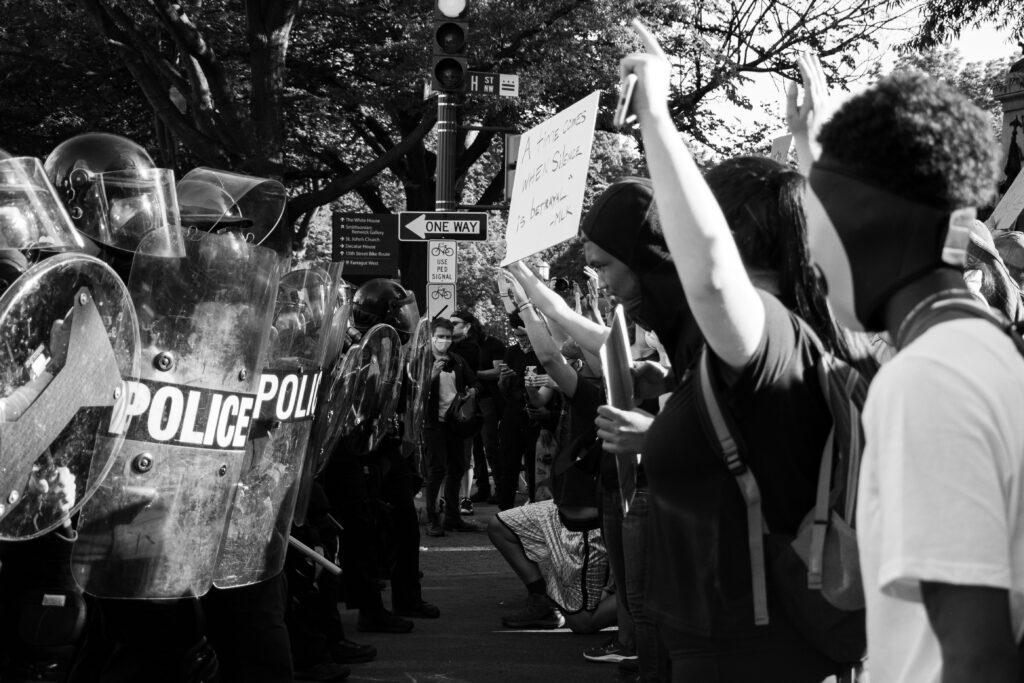Emboldened Vigilantism: Kyle Rittenhouse’s Acquittal Provides a Familiar Insight into America’s Broken Justice System at Work

When protesters demanding racial justice after the shooting of Jacob Blake by police flooded the streets of Kenosha, Wisconsin on August 25, 2020, heavily armed civilian militias traveled to the small municipality to protect private property amid the unrest. Among them was a 17-year-old from Antioch, Illinois, Kyle Rittenhouse. Armed with a semi-automatic, military-style AR-15 rifle, Rittenhouse shot three men, two of them fatally.
When the verdict was issued following a highly politicized trial and days of anticipation, an all too familiar scenario began to play out: while civil rights and gun control activists voiced their anger and outrage at the jury’s decision, pro-gun advocates hailed the verdict as a win for their cause. “Today, the American justice system worked as designed,” said Dudley Brown, executive director of the National Foundation for Gun Rights. His claim is disturbingly correct.
Rittenhouse was acquitted of all charges on the notion of self-defense. According to criminal defense lawyer Julius Kim, the trial “was a straightforward self-defense case,” adding, “it wasn’t complicated.” Subject of the legal investigation was the narrow question of whether or not Rittenhouse was acting in self-defense every time he pulled the trigger, a claim virtually impossible to contradict, and not whether a 17-year-old should be able to legally insert himself into a highly volatile situation across state borders carrying a military-style weapon.
This left the prosecutors facing unlikely odds to reach any form of indictment, as video footage shows Rittenhouse being chased first by Joseph Rosenbaum, who lunged for the defendant’s gun, and later by Anthony Huber and Gaige Grosskreutz, the latter being the only of the three men to survive their encounter with Rittenhouse. Under Wisconsin law, one is allowed to use force intended to cause death or great bodily harm if the actor reasonably believes there is a threat of such magnitude present for him or others. The fact that footage depicts Huber using a skateboard as a weapon going after Rittenhouse and Grosskreutz pointing a handgun at the defendant leaves the prosecution in a virtually inescapable predicament.
Although the verdict may be legally correct, the broader situation which led to the deadly events in Kenosha leaves much of the United States in shock and worry. It sends out a dangerous and frightening message to a nation deeply divided on the application and interpretation of its second amendment. A teenager armed with an assault-style weapon — which he is too young to legally possess — is able to travel across state lines to enforce what he believes to be justice while taking multiple lives in the process, without facing any consequences. The fact that he is now hailed by the political right as a patriotic hero will most certainly embolden other vigilantes to follow his example and take justice into their own hands.
As Erwin Chemerinsky, dean of UC Berkeley School of Law, states: “We are at such a tense time in our society. I wish everyone would condemn what Rittenhouse did even though he was acquitted of a crime.”
The implications of this verdict present a culpable threat to American society, as it further normalizes the presence of deadly weapons at protests, demonstrations, and other public events with high stakes for multiple opposing groups. The presence of firearms in tense public disputes will most certainly lead to an anguished reaction of some participants. The Rittenhouse case showed that anxiety at openly carried weapons can spark even more tension and aggression among belligerents. As civilians such as Rittenhouse are likely to not be professionally schooled in the use of AR-15 rifles or similar weapons, their presence in tense situations is a recipe for disaster. If he hadn’t brought the gun to the protest in the first place, no one would’ve died.
Rittenhouse still being a free man is a chilling reminder that America’s justice system needs urgent reforming. If the verdict is legally correct, it is time to change the laws. Rittenhouse was also charged with unlawful possession of a firearm by a minor, a charge dismissed due to the size of the gun’s barrel. Case closed.
